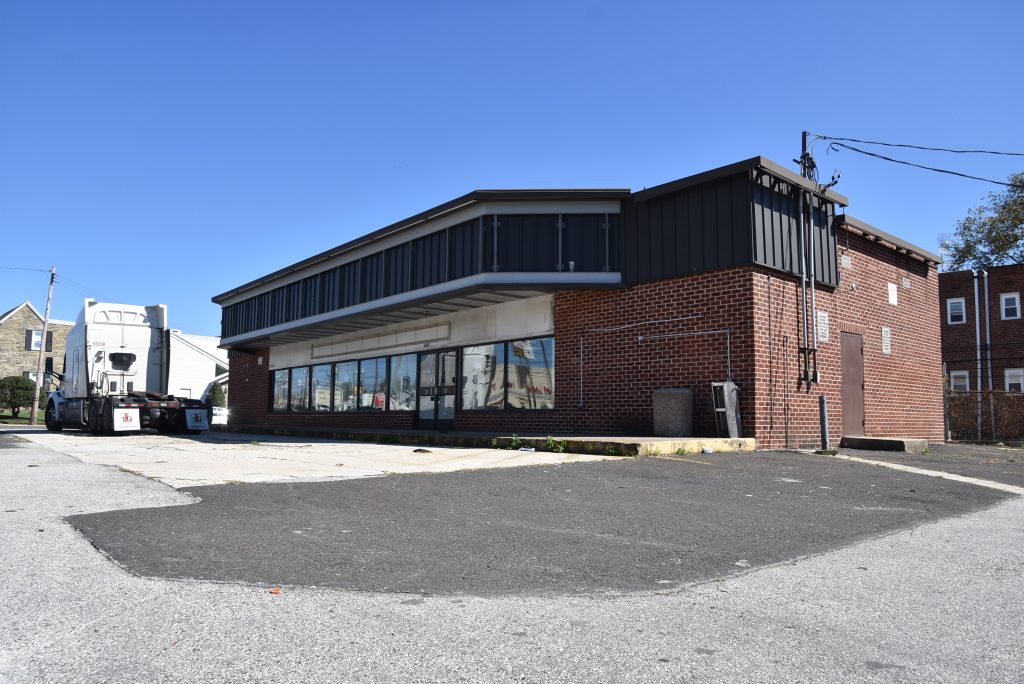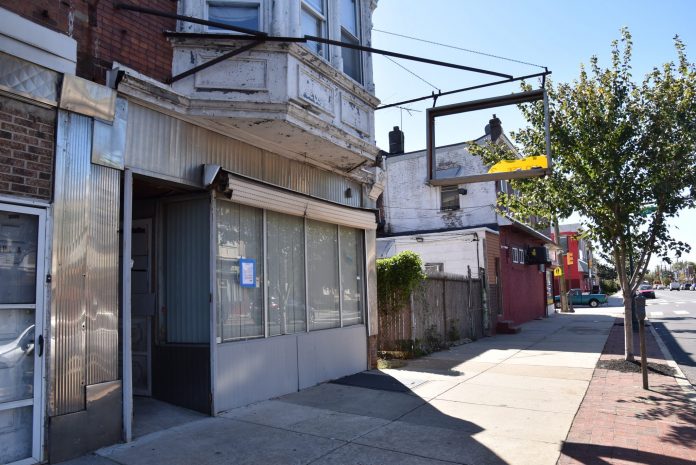Over the past several years, a former 7-Eleven at Frankford Avenue and Levick Street has been more than an eyesore for neighbors.
Tractor-trailers filled the parking lot, trucks illegally dumped and weeds grew up through the cement. At one point, homeless people were living on a mattress behind the building.
So, the Mayfair Business Improvement District went to court in an attempt to take over the vacant property at 6401 Frankford Ave.
It’s a process known as conservatorship. A nonprofit, civic group or even a neighbor can filed a legal request to take control of a property. If judge approves the petition, the conservator can fix it up and sell it.
In the case of the abandoned 7-Eleven, the BID and the owner, a Delaware-based LLC, reached a settlement before the case could reach court. The company agreed to maintain the site, and a tenant has signed a deal to move into the property, BID Executive Director Marc Collazzo said.
The BID has never used conservatorship, also known as Act 135, but Collazzo expects the organization will come back to it.
“I think, still, a lot of people don’t necessarily know that this is available,” he said. “It’s such an extraordinary means that neighborhood groups, businesspeople, developers can help revitalize their communities. If you think about it, it’s a win-win for everybody.”

More and more, community groups in the Northeast are turning to Act 135, which was pushed through the state legislature by now-retired state Rep. John Taylor more than a decade ago.
In Tacony, the neighborhood’s community development corporation worked with Scioli Turco, a nonprofit that specializes in conservatorship, to file its first request, for 6807 Torresdale Ave. (near Knorr Street).
Tacony CDC Director Alex Balloon said the building has been vacant for at least seven years and has attracted squatters. It’s deteriorated to the point where it’s hurting the value of nearby properties.
“There’s just been a lot going on at that property, and it’s kind of dragging the whole block down,” Balloon said.
A Court of Common Pleas hearing on the CDC’s request is scheduled for Nov. 14.
The CDC plans to file Act 135 petitions for a number of other properties in the near future, but Balloon did not want to reveal the exact locations yet.
Scioli Turco has filed more than 100 conservatorship petitions since 2011 and has become the go-to organization for civic groups in the Northeast. The nonprofit also helped the BID on the 7-Eleven petition.
Co-founder Joel Palmer said Scioli Turco has lost only about five cases. He said Act 135 works and has helped turn whole neighborhoods around.
“When we help a neighborhood or a neighbor — and it’s usually one property on a street that’s the (problem) — and once we fix that, it has a hugely beneficial effect,” Palmer said.
Here’s how it works: Community groups, like the Tacony CDC, approach Scioli Turco and ask them to file a petition. Scioli Turco hires an attorney, and, if the court allows them to take conservatorship of the property, the firm pays a contractor to get the property up to code and to a condition where it can be sold.
Scioli Turco, or any petitioner, never gets the deed to the property. However, they have all the control of an owner. They can, and often do, sell the property with court approval.
In this arrangement, the community group pays nothing. All of the funding comes from Scioli Turco, and the nonprofit recoups it plus a fee, either from the original owner or from the sale of the property.
Any remaining proceeds of the sale flow back to the owner.
Not any property is subject to an Act 135 petition.
It has to have been vacant for the past year; not actively marketed for sale in the past two months; not under foreclosure; and the owner must have had the property for at least six months. Additional criteria have to be met to ensure the property is a blight on the surrounding area.
It’s not always a perfect process.
Northwood Civic Association President Joe Krause said his group utilized the law after a bank-owned home at 1301 Wakeling St. fell into disrepair.
“The bank didn’t do anything,” he said. “They didn’t respond to any of our phone calls or letters asking them to fix the property up.”
The conservatorship process for the home took years. A petition was filed in 2015, and Scioli Turco didn’t sell the property until January, according to city records.
The home, which is across the street from Frankford High School, is still not in great condition, but Krause said neighbors are happy it’s out of the bank’s hands.
Balloon said the Tacony CDC has taken a number of approaches to tackling blighted buildings, mostly successfully. The group has turned to conservatorship only for the most stubbornly vacant properties — those that have been deteriorating for more than a decade.
“The low-hanging fruit for the most part is gone, and now we’re getting on the more difficult projects,” Balloon said.
Collazzo, who helped implement the law and draft its amendments while working in Taylor’s office, said Act 135 has been an effective tool.
The plan is for the 7-Eleven to be turned into what Collazzo called “a very unique Asian restaurant.” Those involved in the project aren’t ready to release any more details, he said.
Collazzo said he hopes the transformation — from vacant building to bustling restaurant — will help stimulate that part of Frankford Avenue.
“We’re pretty excited about it, and we think the community will be, too,” he said. ••






